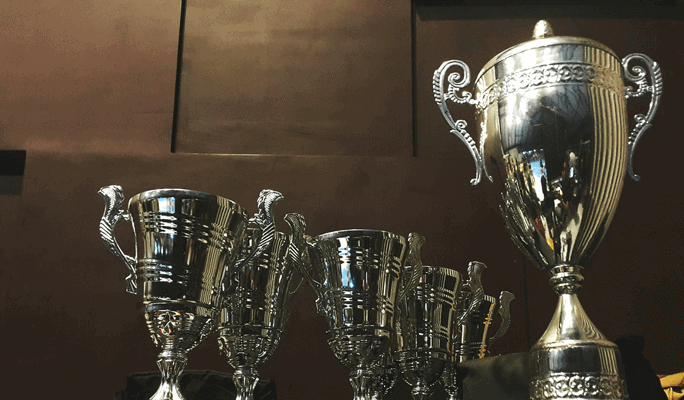
The Springboks’ 3 Rugby World Cup Wins
‘Sport has the power to change the world’. Former South African president, Nelson Mandela coined this popular phrase during his speech at the inaugural Laureus World Sports Awards 2000. For a sports-mad country such as South Africa sports has a positive impact. Socio-economic disparity, widespread crime and government corruption all remain a concern for the everyday South African. However, sport has proven to be the great unifying factor in a country trying so desperately to get out of the rut that it finds itself in. Cricket, rugby and football are the ‘big 3’ sports in South Africa. While soccer may have the largest following, it is the national rugby team, the Springboks, who have had the greatest success on the global stage. Most recently the Boks clinched the 2019 Rugby World Cup (RWC) title. It is safe to say that South Africans are still on a high following this success.
Making a mark in 1995 – the first Springbok Rugby World Cup Win
Newbies
South African sport returned to the international stage in 1992. Due to the country’s apartheid policies, the nation had been in isolation since 1964. As such, the first two editions of the Rugby World Cup in 1987 and 1991 took place without the Springbok involvement. Subsequently, South Africa was awarded the right to host the 1995 event. With minimal international exposure prior to the competition, the Springboks entered the showpiece as relative unknowns. In the opening game against reigning world champions Australia, the Boks shocked the world with a winning performance. Led by captain Francois Pienaar and coached by Kitch Christie, the team progressed confidently through the different stages of the tournament.
Going all the way
After narrowly beating France in a wet semi-final, the Boks faced up to tournament favourites the All Blacks in the final. In their semi-final, rugby great Jonah Lomu nearly single-handedly won the game for New Zealand. The four tries he scored, along with his physical contribution to that game remains a YouTube favourite to this day. The final itself was a nervy affair, with neither team managing to score a try. The Boks managed to negate the threat of Lomu, and in extra time a Joel Stransky drop goal sealed the victory for South Africa. Many would say that the most significant moment was still to come. The then President Nelson Mandela presented the trophy to Francois Pienaar while wearing the captain’s number 6 Bok jersey. This moment is remembered as a time when the country united behind the successful Springbok team.
The in-between years
In the years following the success of 1995, South African rugby experienced some wonderful highs and some terrible lows. The 1998 team under Nick Mallet enjoyed great success in winning the Tri Nations. They also recorded a record (albeit tied) winning streak of 17 games. After their semi-final defeat to eventual champions Australia in the 1999 World Cup, Springbok rugby entered a dark era littered with record defeats to nations such as England and France. This period culminated in the loss against New Zealand in the quarter final of the 2003 World Cup. England ended up winning the final against Australia. This was the earliest stage that a Bok team had departed from the global showpiece.
Regaining the mantle in 2007
A new dawn
A dejected Bok team returned from the 2003 World Cup. Moral was at an all-time low, and the general public was fed up with mediocre performances. Enter new coach Jake White. White had a grand plan and had nothing but belief in the potential for SA rugby. With the team overhauled, John Smit was appointed captain.
In the first test match series contested under White and Smit, the Boks emerged victors against a touring Ireland team. A popular story from that time is that Jake told the team then already that they would win the 2007 Rugby World Cup. Building on the momentum that winning brings, the Boks subsequently won the 2004 Tri Nations and earned the title of IRB team of the year. Springbok rugby was back with a bang.
The years building up to the 2007 World Cup featured more Bok success than not. The three consecutive victories against England in late 2006 and early 2007 are considered pivotal in their success at the World Cup that year.
French success – the second Rugby World Cup win
Going into the tournament, South Africa had a highly experienced squad who had enjoyed more instances of success than not since 2003.
The pool match against England was targeted by the Springboks as being critical in their quest for World Cup glory. As it transpired, the Boks emerged victors in a one-sided match. This win ensured that SA finished top of their pool, and thus had an easier path to the final.
The quarter and semi-final matches against Fiji and Argentina were tighter than the scorelines suggest, but the Boks still found themselves in their second World Cup final. They would meet a resurgent England in the decider. Both Australia and France were put away in the knockout stages by an England team who found themselves on an upward trajectory after their pool stage loss to the Boks.
The final was a low scoring match, whereby all the points came from the boots of the team’s respective kickers. While not the whitewash of their previous encounter, South Africa were never behind on the scoreboard and managed to win the game 15-6. For the second time in their history the Boks held aloft the William Webb Ellis trophy as world champions.
Period of frustration
Winning the 2009 series against the British and Irish Lions, along with Tri Nation success in the same year was the Springbok high point in the years to come. Failing to progress further than the quarter final in the 2011 World Cup was a big disappointment. Many believed that this was perhaps an even better Bok team than the one that took the 2007 title. It was not meant to be, and New Zealand took home their first title since their victory in the inaugural competition. Inconsistent performances and more record losses were the talking points around a Bok team that again failed to live up to expectations at the 2015 World Cup. Although only narrowly losing out to eventual victors New Zealand in the semi-final, one never felt that the SA side of the time had it in them.
2019 Rugby World Cup glory
Late changes
Rassie Erasmus, the coach who would guide the Boks to their 3rd title was only appointed as head coach in the beginning of 2018. This afforded precious little time to get a dysfunctional team prepared for the 2019 event. Most teams begin preparation for World Cups four years in advance, but Rassie effectively only had 18 months. The 2018 season was a mixed bag of results. Beating the All Blacks away from home for the first time since 2009 was perhaps the moment of the year. Winning the Rugby Championship in 2019 albeit in a shortened version, would have given the Boks the confidence they needed going into the World Cup.
Japanese triumph
Led by charismatic captain Siya Kolisi, the Boks entered the World Cup with a quiet confidence. Losing to New Zealand in their first game wasn’t a complete disaster, as it presented the team with a perceived easier path to the final.
Quarter final opponents Japan were enjoying an amazing run in the tournament. Bolstered by the support of the home crowds, Japan beat established top tier nations Ireland and Scotland in the pool stages. The Boks however had no problem putting away the passionate Japanese.
The semi-final encounter against Wales was a close affair. A Handre Pollard penalty 5 minutes from time sealed the game for the South Africans.
Meeting the Boks in the final were an English team on a high after beating perennial favourites New Zealand in their semi-final. The Springboks saved their best performance for the final. They completely outplayed and out muscled their foes from the North. The two second half tries by Makazole Mapimpi and Cheslin Kolbe put the result beyond doubt. South Africa were world champions for the third time!
We are the rugby world champions again…. and we are excited about South African rugby!
All three World Cup triumphs have had a unifying effect in a country constantly battling to rid itself of its dark past. The Springbok success on the grandest stage of all has inspired hope. While sport doesn’t solve the daily issues many South Africans face, it does bring people together in pursuit of a common cause. We can only hope that the proud and united feeling we all felt when Siya Kolisi lifted the World Cup in 2019 will be a catalyst for positive change in our country.



